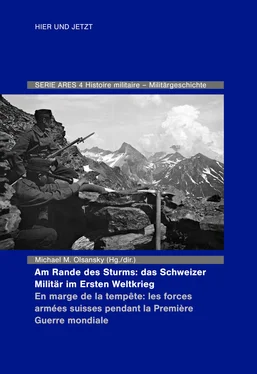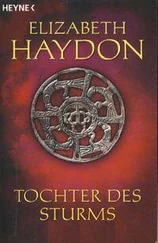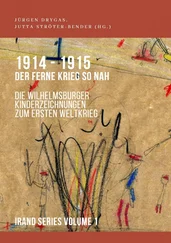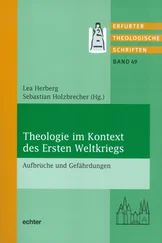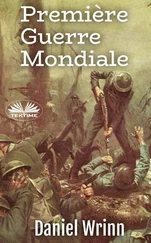1 ...6 7 8 10 11 12 ...23 Because the choice to avoid war was deemed valuable by the great powers, its regulation in international law was prioritised at the second Hague peace conference of 1907. The experience of the Russo-Japanese War in particular impressed on the great powers that if they wished to take full advantage of neutrality, they needed greater recognition of neutral rights (as opposed to belligerent rights) in the international arena. This conference created a comprehensive, if controversial, set of rules that neutrals and belligerents were to apply in time of war. Most of them related to the regulation of economic warfare, the defence of territorial sovereignty and the requirement for neutrals not to give military assistance to belligerents. The concept of impartiality was less well defined in the conventions, although the idea of neutrals «not giving undue favour» was firmly entrenched. All the great power attendees, Germany included, looked to influence the shape of these Hague rules. They did so to benefit as much from the regulations when they declared themselves neutral as when they were at war. And, by and large, they applied those regulations fastidiously for profit and stability. For example, during the two Balkan Wars fought between 1911 and 1913, the neutrality of the world’s industrial states ensured both a steady supply of arms to the warring factions and enabled the great powers to mediate and bring the conflicts to a speedier end. 14Altogether then, neutrality was a most useful tool for diplomacy and statecraft in the nineteenth-century age of limited war. On the eve of the First World War, neutrality was a respectable, practical and much-used international norm.
The Great War ended neutrality’s golden age as surely as it collapsed the nineteenth-century international order. In the process, the First World War transformed the meaning and applications of neutrality. This was as true for Switzerland as for any of the other states. The implications of this statement are numerous and profound. Although on the eve of war in 1914, neutrality was a stable and recognised international reality and (arguably) more stable than it had ever been in the history of war, peace and international relations, by war’s end in 1918, neutrality was no longer a stable reality or much valued in the international system (although it had some value). 15The countries that managed to maintain their neutrality during the war did so not as much by upholding the rules, regulations and expectations attached to neutrality in international law as they did by negotiating their on-going relationships with the belligerents. The diplomacy of neutrality and the maintenance of a «neutral (and impartial) face» increasingly defined the politics of the relationships between most neutrals and belligerents. The legal parameters of neutrality continued to matter, but they were often negotiated. The cultural interpretation of neutrality gained ground. 16
The idea that neutral states and their people were victims of the competing demands of the enemy camps was a common and important one within the neutral countries themselves. So were attempts at promoting the on-going humanitarian and internationalist functions neutrals performed in the international system and for the belligerents. To this end, the work of the International Red Cross came to take on greater relevance as did the «good offices» neutral states performed in representing enemy interests in belligerent countries. In other words, throughout the war, neutrals were active agents and promoters of their non-belligerency and advocated that their neutrality offered essential services to the warring states. From the neutral governments’ perspective, the neutrals were essential agents of the war and helped to mitigate and limit some of its totalising impacts.
However, such professions of the virtues of neutrality came up against increasingly hostile responses. It did not take long for the belligerent press (on both sides) to depict neutrals as wanton war profiteers or as shirking from international responsibility. In a «just war», of course, there is no escape from doing the right thing. How could a neutral stay neutral when the very future of the world and its civilisation were at stake? How could a neutral not fight the «good fight»?
These oppositional perspectives on the value of neutrality were part of a much larger public and transnational investigation into the nature of the war and the post-war world order. The horrors of the First World War were exposed to the world’s press (belligerent and neutral) and thus to the world’s opinion makers. Public perceptions of who was fighting on the side of «right» and «justice» mattered within belligerent and neutral countries alike. The fact that all the major belligerents, and many of the smaller powers too, engaged in decisive press campaigns in neutral states suggests just how important the war for the «hearts and minds of neutrals» was and how integral a sense of global awareness was to contemporary ideas of war. Of course, a neutral could become a belligerent (and many did), so influencing their populations’ perspectives on the war was an essential tool of war. 17To that end, the media war was a signal of the totalising impact of the war. Above all, the media war suggests that neutral space was a conceptual and intellectual theatre of war.
Increasingly, the opinion that neutrality was no longer a feasible or viable position for a state to adopt also grew in the belligerent states. In 1915, the Irish playwright Sir Bernard Shaw commented that neutrality was «utter humbug». 18He was not alone. That same year, another Irishman, judge James Creed Meredith, responded to Spain’s declared neutrality in the most scathing tones:
«A nation […] that has refrained from expressing the slightest concern in the ultimate issue of the struggle [of war] and avoided indicating the least sympathy with any belligerent however outraged [cannot be] entitled to be heard with particular respect on the conclusion of peace.» 19
In 1918, the German international lawyer Alex Lifschütz argued a similar point that the «end of neutrality» was nigh and any neutrals that continued to exist should do so as passive and uninvolved in world affairs. They certainly should not have any right to decide the shape of a post-war international system. 20The Italian Luigi Carnovale went even further, arguing that neutrality amounted to passiveness and selfishness. 21At war’s end, the League of Nations’ charter attempted to outlaw neutrality as contrary to the interests of global peace. Collective security would, so the argument went, guarantee international stability better than nineteenth-century style diplomacy supported by unreliable neutrality declarations. The nineteenth-century conception of neutrality fell victim to the demands of industrialised total war.
Through the course of the war, the expectation that neutrals could continue as neutrals in the way that they had grown accustomed to before 1914 ended. The exigencies of a global war involving all the world’s major industrial powers (especially after the United States ended their neutrality and entered the war in 1917) altered the international and domestic realities for all states and most peoples, neutrals included. Nineteenth-century conceptions of neutrality, embedded in principles of balancing power, limiting wars and maximising the economic and imperial gains made by keeping the seas open for business, had to adapt to the realities of total war, the closing of borders, the militarisation of the world’s waterways and the conduct of global economic warfare. In other words, this total war was total in part because it muddied the distinctions between belligerents and non-belligerents: they were all affected in fundamental ways by the war.
To that end, scholars of neutral nations, ideas and experiences during the First World War need to keep in mind the shifts in values and expectations attached to neutrality during the war both domestically and internationally. Neutrality was never a domestic reality alone: it was always embedded in international relationships, be they political, social, economic or cultural. They also need to keep in mind that neutrality was not a unique position. A large part of Europe and the world declared its neutrality in August 1914, although a much smaller number of governments remained neutral in 1918. Above all, it is imperative that scholars of the war acknowledge the global environment of the conflict. Perhaps the easiest way to consider how relevant neutrality was to the global theatre of war is to consider that there were only two types of states in the war: ones that were either belligerent or neutral.
Читать дальше
